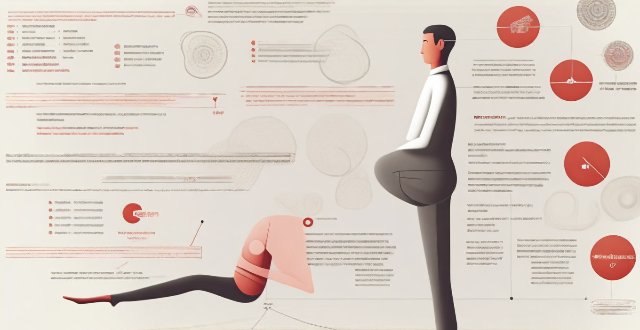Mental Stress

How do sports competitions influence stress levels and mental readiness ?
Sports competitions can significantly impact stress levels and mental readiness. Performance pressure, fear of failure, winning obsession, and physical exertion can increase stress levels, while confidence building, goal achievement, camaraderie, and mindfulness practices can decrease them. Similarly, focus and concentration, resilience, mental toughness, and visualization techniques can improve mental readiness, while overthinking, perfectionism, lack of self-belief, and external factors can impair it. Overall, sports competitions provide opportunities for growth, learning, and personal development but also present challenges that require effective coping strategies to manage stress levels and maintain mental readiness.

How do athletes cope with the mental stress of competition ?
Athletes employ various strategies to cope with mental stress during competitions, including visualization and imagery, breathing techniques, goal setting, social support, mindfulness and meditation, professional help, and maintaining healthy lifestyle habits. These methods range from mental preparation techniques to seeking professional guidance and engaging in leisure activities for relaxation and enjoyment. By incorporating these strategies into their routines, athletes are better equipped to handle the psychological demands of competition.

How do health management apps help individuals manage stress and improve mental wellbeing ?
Health management apps offer various features to help individuals manage stress and improve their mental wellbeing, including mindfulness exercises, sleep tracking, physical activity tracking, nutritional guidance, social support, relaxation techniques, goal setting, and educational content.

How does stress affect women's mental health ?
This text discusses the effects of stress on women's mental health, including anxiety and depression, sleep disturbances, emotional eating, low self-esteem, difficulty concentrating, irritability and mood swings, substance abuse, and physical health issues. It emphasizes the importance of self-care practices to manage stress effectively.

What are the benefits of including mental health and stress management in personal safety training programs ?
Incorporating mental health and stress management into personal safety training programs can improve physical health, enhance mental well-being, boost work performance, increase job satisfaction, and reduce costs for organizations. By managing stress levels, individuals can achieve better sleep quality, reduced anxiety and depression, increased resilience, improved relationships, and enhanced career development. Organizations can benefit from lower healthcare expenses and decreased turnover rates by promoting a positive work environment through mental health and stress management training.

How does environmental stress from climate change influence mental health disorders such as anxiety and depression ?
Climate change is a global issue that not only affects the environment but also has significant implications for human health, including mental health. Environmental stress from climate change can exacerbate existing mental health disorders such as anxiety and depression or even trigger new ones. One of the most direct ways in which climate change impacts mental health is through increased exposure to natural disasters such as hurricanes, floods, wildfires, and heatwaves. These events can cause traumatic experiences, loss of homes and communities, displacement, and financial hardship, all of which are risk factors for developing mental health disorders like anxiety and depression. Climate change affects ecosystem services, such as air and water quality, food production, and outdoor recreational opportunities, all of which have been linked to mental well-being. The socioeconomic impacts of climate change, such as job loss in industries affected by climate policies or extreme weather events, can lead to financial insecurity and social disruptions that exacerbate mental health conditions. Anticipatory anxiety about the potential consequences of climate change can also contribute to chronic stress and exacerbate anxiety and depressive symptoms. Coping mechanisms and building resilience are essential for managing the psychological impacts of environmental stress.

Can exercise help with stress management ?
**Topic:** Can Exercise Help with Stress Management? **Summary:** * **Introduction:** The inevitability of stress and its potential impact on health highlight the importance of effective stress management. Exercise is often touted as a beneficial method for reducing stress. * **Relationship Between Exercise and Stress:** * **Physical Effects:** Exercise triggers endorphins, reduces cortisol levels, and improves sleep quality—all of which contribute to stress reduction. * **Mental Effects:** Enhanced cognitive function, increased self-esteem, and mindfulness techniques associated with exercise can aid in stress management. * **Benefits of Exercise for Stress Management:** * **Physical Benefits:** Improved cardiovascular health, weight management, and pain relief can reduce stress caused by related health issues. * **Mental Benefits:** Exercise can alleviate symptoms of anxiety and depression, improve mood, and increase resilience to stress. * **Practical Tips:** * **Setting Goals:** Start small and choose enjoyable activities to make exercise a sustainable habit. * **Consistency:** Scheduling workouts, finding an accountability partner, and tracking progress can help maintain a regular exercise routine. * **Conclusion:** Exercise is a powerful tool for managing stress, offering both physical and mental benefits. Incorporating it into one's lifestyle can significantly enhance overall well-being and resilience to life's challenges.

Can physical activity improve mental health ?
Physical activity has been found to significantly improve mental health by enhancing self-efficacy and stress self-management skills. Research shows that engaging in physical activities can lead to a sense of accomplishment, boosting an individual's confidence in their abilities, which in turn fosters better stress management and contributes to enhanced mental well-being. This relationship is particularly important for adolescents, a demographic vulnerable to mental health challenges. Future research should focus on identifying specific types of physical activities that have a greater potential to enhance these skills, guiding the development of targeted interventions aimed at improving mental health through physical activity.

How does exercise contribute to mental rejuvenation ?
Exercise plays a crucial role in mental rejuvenation by releasing endorphins, improving blood flow, enhancing neuroplasticity, reducing stress, improving sleep quality, facilitating social interaction, and boosting self-esteem. Regular physical activity can significantly contribute to improved cognitive functions, emotional stability, and overall mental well-being.

What is the relationship between exercise and mental health ?
Exercise has a profound impact on mental health, enhancingExercise has a profound impact on mental health, enhancing reducing stress, improving sleep quality enhancing mood and cognitive function, reducing stress, improving sleep quality, and fostering social interaction. Regular physical activity stimulates the release of neurotransmitters like endorphins, serotonin, and dopamine, leading to improved mood, relaxation, and better cognitive abilities. It also helps manage cortisol levels, promotes deeper sleep, and provides emotional support through group activities, ultimately contributing to overall mental well-being.

What are the best exercises for improving mental health ?
Engaging in regular physical activities is crucial for maintaining good mental health. Some of the best exercises for improving mental health include cardiovascular exercises like running, cycling, and swimming; strength training exercises like weightlifting, resistance bands, and bodyweight exercises; and yoga and meditation practices like Hatha yoga, mindfulness meditation, and Tai Chi. By incorporating these exercises into your routine, you can reduce stress and anxiety levels while also improving overall well-being.

What role does physical exercise play in boosting mental focus ?
Physical exercise is not only beneficial for our physical health, but it also plays a crucial role in enhancing mental focus. Here's how: 1. Release of Endorphins: Regular exercise triggers the release of endorphins, which can help reduce stress and anxiety, leading to improved mental clarity and focus. 2. Increased Blood Flow to the Brain: Engaging in physical activities increases blood flow to the brain, delivering more oxygen and nutrients. This increased blood flow can help improve cognitive function, memory, and overall mental sharpness. 3. Better Sleep Quality: Exercise has been shown to promote better sleep quality and duration. Adequate sleep is essential for maintaining mental focus and concentration throughout the day. 4. Reduction of Stress and Anxiety: Physical activity helps lower levels of the body's stress hormones, such as cortisol. By reducing stress and anxiety, exercise allows individuals to maintain a clearer mind and stay focused on tasks at hand. 5. Enhanced Self-Confidence and Mood: Regular exercise can boost self-esteem and confidence, leading to a positive outlook on life. A positive mindset contributes to better mental focus and productivity. 6. Improved Cognitive Function: Studies have found that regular physical exercise can lead to improvements in various aspects of cognitive function, including attention, memory, and executive functions. These cognitive enhancements directly contribute to increased mental focus and concentration.

How can mental training improve physical abilities in athletes ?
Mental training is crucial for athletes as it enhances physical abilities by improving focus, managing stress, and promoting a positive mindset. Techniques such as visualization, self-talk, and emotional intelligence contribute to better performance.

How does stress management contribute to sports health maintenance ?
Stress management is crucial for athletes' physical recovery, immune function, mental clarity, emotional well-being, consistency in performance, and competitive advantage. By managing stress effectively, athletes can improve their overall health and achieve success in their sport.

Is yoga an effective method for stress relief ?
Yoga is a popular method for stress relief, offering physical, mental, and emotional benefits. Research supports its effectiveness, and incorporating yoga into your routine can significantly reduce stress levels. Consistency and personalization are key to experiencing its full benefits.

How can I reduce stress in my daily life ?
The article provides several tips on how to reduce stress in daily life, including identifying the sources of stress, practicing mindfulness and meditation, exercising regularly, eating a healthy diet, getting enough sleep, and connecting with others. It emphasizes the importance of taking steps to manage stress and improve overall well-being.

How does stress management affect women's well-being ?
Stress management plays a crucial role in women's well-being, affecting their physical, mental, and emotional health. By managing stress, women can improve their immunity, sleep quality, and reduce the risk of chronic diseases. It also helps in improving mood, concentration, and reducing anxiety and depression. Stress management can lead to improved relationships, self-esteem, and increased resilience. Overall, it is essential for women's well-being and can lead to a happier and healthier life.

How can stress management contribute to better personal health ?
Stress management is crucial for maintaining physical and mental health, as it can reduce the risk of chronic diseases, improve sleep quality, boost the immune system, reduce anxiety and depression symptoms, enhance cognitive function, and increase resilience. Incorporating stress management techniques into daily routines can lead to better overall well-being and a higher quality of life.

What role does sleep play in managing stress ?
Sleep is crucial in managing stress by regulating hormones, improving cognition, promoting emotional stability, offering physical health benefits, and enhancing quality of life. Prioritizing sleep is key for effective stress management.

How does meditation help in reducing stress levels ?
Meditation is a practice that helps in reducing stress levels by calming the mind and body, improving concentration, promoting emotional health, increasing self-awareness, and enhancing mindfulness. It is a powerful tool for managing stress effectively and leading a happier, healthier life.

How do successful athletes manage pressure and stress ?
Successful athletes use various strategies to manage pressure and stress, including visualization and mental rehearsal, mindfulness and meditation, goal setting and preparation, routine and consistency, social support, physical health and recovery, and flexibility and adaptability. These techniques help them stay calm, focused, and resilient during major competitions.

Are there specific exercises that help improve mental health ?
Exercises like yoga, meditation, aerobic exercise, resistance training, MBSR, and Tai Chi can help improve mental health by reducing stress, anxiety, and depression symptoms while promoting relaxation, self-awareness, and social interaction.

How do I manage stress while training for a marathon ?
Managing stress is crucial during marathon training. Tips include setting realistic goals, following a structured plan, prioritizing recovery, staying hydrated and nourished, getting enough sleep, practicing mindfulness, seeking support, managing time wisely, and embracing the process. These strategies help minimize stress and make the training journey more enjoyable.

What impact has the pandemic had on mental health and well-being ?
The COVID-19 pandemic has significantly impacted mental health and well-being, leading to increased stress, anxiety, depression, insomnia, and substance misuse. Factors such as fear of infection, financial instability, social isolation, grief, and disruption of daily routines contribute to these issues. The situation emphasizes the need for accessible mental health services and support systems to address psychological needs during this challenging period.

What are some natural remedies for stress relief ?
Stress is a common problem that affects people of all ages and backgrounds. While there are many ways to manage stress, some people prefer to use natural remedies instead of relying on medication or other treatments. Here are some natural remedies for stress relief: 1. Exercise: Regular exercise can help reduce stress by releasing endorphins, which are natural mood boosters. Even a short walk or jog can make a big difference in your overall well-being. 2. Meditation: Meditation is a popular way to reduce stress and improve mental clarity. It involves focusing on your breathing and clearing your mind of distractions. There are many different types of meditation, so you can find one that works best for you. 3. Yoga: Yoga combines physical exercise with mindfulness and relaxation techniques to help reduce stress and improve overall health. Many yoga classes also include music and aromatherapy to further enhance the experience. 4. Massage therapy: Massage therapy can help relieve muscle tension and promote relaxation by stimulating the release of endorphins and reducing cortisol levels in the body. 5. Aromatherapy: Essential oils such as lavender, peppermint, and chamomile have been shown to have calming effects on the brain and body, helping to reduce stress and anxiety. 6. Herbal teas: Herbal teas like chamomile, ginger, and lemon balm contain compounds that have been shown to have anti-inflammatory and calming effects on the body. 7. Deep breathing exercises: Deep breathing exercises involve taking slow, deep breaths through your nose while focusing on your breath. This helps to calm your mind and relax your body. 8. Spending time in nature: Being surrounded by nature has been shown to have a positive impact on mental health and reduce stress levels. Taking a walk in the park or going for a hike can be a great way to de-stress after a long day at work or school.

What is the importance of mental health in overall personal well-being ?
The text discusses the importance of mental health in overall personal well-being. It explains how good mental health can lead to better physical health, emotional stability, healthy social relationships, workplace productivity, and an improved quality of life. The article emphasizes the need for prioritizing mental health by seeking professional help when needed, practicing self-care, and engaging in activities that promote good mental health.

In what ways does poor personal hygiene impact mental health ?
Poor personal hygiene can negatively affect mental health by causing decreased self-esteem, social isolation, and exacerbating symptoms of mental health disorders. It is important to maintain good hygiene habits for overall well-being.

How does stress management through exercise impact professional well-being ?
The impact of stress management through exercise on professional well-being is significant and positive. Professional well-being refers to overall satisfaction and happiness in the workplace, which includes job satisfaction, work-life balance, relationships with colleagues, and personal growth opportunities. Exercise is a proven method for managing stress, as it releases endorphins and reduces levels of stress hormones like cortisol and adrenaline. Regular physical activity also promotes better sleep, essential for stress management. The impact of exercise on professional well-being includes improved mental health, enhanced cognitive function, increased energy levels, better work-life balance, and improved interpersonal relationships at work. By incorporating regular physical activity into our daily routine, we can achieve these benefits, leading to increased productivity, reduced absenteeism, and improved job performance. Therefore, organizations should promote exercise among their employees as part of their overall wellness program.

Are there any foods that can help alleviate stress ?
The text provides a summary of foods that can help alleviate stress, including dark chocolate, avocado, blueberries, salmon, and chamomile tea. Each food is explained in terms of its benefits and recommended intake. The article emphasizes that while these foods may help reduce stress levels, they should not be used as a substitute for professional medical advice or treatment.

Can regular physical activity help in reducing stress and anxiety ?
Regular physical activity can help reduce stress and anxiety by promoting the release of endorphins, improving sleep quality, and boosting self-esteem. Aerobic exercises like running, swimming, or cycling are particularly effective because they increase heart rate and circulation, leading to improved oxygenation of the brain. Yoga and tai chi focus on breathing and relaxation techniques that can also help reduce stress and anxiety. The American Heart Association recommends at least 150 minutes of moderate-intensity aerobic exercise or 75 minutes of vigorous-intensity aerobic exercise per week for adults. Finding an exercise routine that works for you and that you enjoy is key to sticking with it over time.